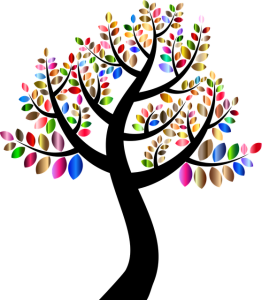by Vani Viswanathan
Reading through our submissions for Spark this month, Anupama and I were both amused that the words “pedagogy” and “learning” only seemed to evoke memories of school, and at best, college. Granted that our years in these institutions mould us into the adults as whom we eventually face the world, but what about the learning in the places that we spent at least 60 percent of our adult days? I’m talking about the workplace. But not the structured training sessions after which you are wondering how any of this can be applied in your everyday work. The little things that contribute to your approach to life, that help you discover yourself, that make you understand yourself better.
After working in the communications world for close to seven years, earlier this year I switched to an NGO that works in an area I’m incredibly passionate about: gender, sexuality and trainings around it. I got to know of them a couple of years ago, but when I quit my job December last year to figure out what I wanted to do next, my mind eventually fixated on this organisation. For a few years I’d been interested in trainings around gender for young people, especially children and teenagers, perhaps initiated by the birth of my nephew and my inclination to see that he doesn’t grow up with gender stereotypes. The NGO I’ve joined doesn’t conduct trainings directly for young people on these topics, but for service providers (people who work with NGOs, health institutions, schools, etc.), among others. They also have some wonderful books that introduce gender and sexuality in age-appropriate language for kids of different age groups, which, obviously, I’m devouring with interest.
I’ve been incredibly lucky that things worked out and I could join them.
With time, the kind of work I’ve been doing has been transforming and evolving, and to my delight, I’m getting to slowly work on the topics I care about – or at least as much as someone with my nascent levels of knowledge and experience in the areas of sexuality, sexual and reproductive health and rights, etc. can get to do. I get the space to read widely, learn more and discuss my questions with my colleagues, without fear of showing my ignorance or half-baked opinions.
It doesn’t make sense to compare two organisations that work in the same area, leave alone comparing my experience here with my previous jobs. I’ve had the privilege of having some wonderful mentors in my old jobs, people who have become more than colleagues. They taught me to do my job well and to take pride in doing so. They taught me how words can be my aide, and they encouraged me to be detail-oriented. Looking at them, I wanted to be someone who my colleagues could always reach out to for a discussion or some help.
All the same, there were a few things that stood out for me in the initial weeks of my joining the NGO. These were surprising to me because they showed me that there are various ways one can choose to respond to several situations. Here I list a few that got me thinking, even though some of them seem obvious.
1. “Not my story to tell”: This line came up in an introductory session from the NGO on its culture, among other things. It means that if you’d like to know something about somebody, you ask them, not others. That leaves less room for gossip or “sharing” something personal about another in the latter’s absence – something we take for granted in everyday life. To date, nearly everything I’ve learnt about a colleague in the organisation is through their words, not through others’. There are some things which I’d have deemed basic that I don’t know about some of my colleagues, and surprise, surprise – it doesn’t affect me one bit. It’s interesting how much we think we need to know about a person to interact with them everyday at a workplace, although in reality, it doesn’t really matter!
2. The importance of a stance: NGOs work alongside several others doing the same things they do but differently. And that’s okay, because each has a stance – and you need organisations of all kinds to work together to get change going. This means something important at a personal level as well – one can’t expect others to immediately change ideologies they’ve been working by for decades, and it’s okay for you to push for your own ideology at your personal level. Sticking to yours will only convince the others around who are trying to change you, that it’s not going to happen
3. Gender and all that: I’d been aware of the feminist thinking that gender is not a binary and it’s limiting to assume that people are either “men” or “women” based on their appearance. I’d also known that it is unfair to mock or insult people who didn’t fall so neatly in those categories. But I hadn’t paid enough attention to ensuring I didn’t make the mistake of addressing people based on gender binaries, especially when it came to people I don’t know. It seems silly in retrospect given I knew the way around – one can simply refer to the person as “they”! This is something I’ve put into practice after joining the NGO. It’s a bit of a problem for a grammar stickler like me, but English evolves and words we use with ease today were once never in the dictionary. So what’s wrong with referring to a single person as “they”? Nothing, really.
4. That science isn’t everything: Coming from the world of public relations (where it is a bit of a struggle to show “return on investment” made by clients on our work), this seemed obvious. But NGOs have donors to answer to, who understandably want to know how the money they gave has created change on the ground. But just like in public relations, it’s not easy: how can I measure someone’s attitudes when it comes to, say, homosexuality? How can I convincingly say that the shift in attitudes around a topic is because of my work alone? People live in a society where a variety of aspects influence their thoughts, perceptions and actions, and it’s hard to pin-point one training, a book or an article that changed their mind about something.
I also got around to seeing how in people’s minds, “science” trumps everything else, even though science is hardly static or unshakeable! Many social notions get explained away as scientific or “natural”, such as maternal “instinct” (women’s hormones make them more capable of nurturing, than men’s – not true) or homosexuality (that it’s “unnatural” because it doesn’t exist in the animal world – again, not true, as evidences of homosexuality have been found in several species)
5. Finally, “changing the world” is a hard task: …And it’s likely we won’t succeed in this generation. Maybe, not even in the next. One day, I dejectedly said in a meeting that rapes and child marriages and objectification of women happened centuries ago and they still do – there is no hope in the world. Laughing, a colleague said that that’s true, but only to an extent – today, women can fight about so many things, loud and clear; we can argue for our rights to life, work, safety, education and health, although it’s a different matter if all women are able to access these. Many women have a voice, and that was denied to us for several centuries. I remember asking the same colleague how they managed to continue working in this field, year after year, watching how sometimes efforts go one step forward and two steps back. I don’t remember their answer now, but the meeting made me think about how something you want has to be hard-earned for it to matter.
And that even if you can’t “change the world”, it’s okay, because you’re contributing to some efforts towards the cause. The world is never going to run out of problems, and it’s hard to not be a cynic. What’s important is to keep going, and continue doing what makes you happy.
Besides these, I’m amazed at the work-life balance that I’m able to maintain, with the generous support and values maintained by the organisation (and I recognise that these are personal experiences, from this NGO alone – and it might be different elsewhere). I also realised how much easier it can be to manage the 8-9 hours at work everyday if we could just cut down on the number of hours spent chatting! In my initial days, I found the silence in the office a little unsettling, as I was used to a bustling office with people constantly on the phone. I’d always been a quiet worker who didn’t go around the office talking to people, but here I see it at work among all of us. It’s surprising how much gets done in a short time. I’ve been fairly regular with yoga as compared to any other exercise I’ve attempted before. I like the fewer-but-more-productive hours, and I thoroughly enjoy the fact that my hours after work and my weekends are for me alone – and that’s precious freedom that I think I’d be unwilling to ever give up.
So that’s what I mean by how work can make you understand yourself better, help you discover things about yourself, etc. Of course, if you’re the philosopher, you’d say life plants lessons everywhere, but only some of us wander in the right gardens to find them. And that’s why work matters a lot. And constantly learning at work matters more.
Do write to the author at editors@sparkthemagazine.com in case you wish to learn more about the NGO mentioned here.







A simple read but well written. I like the efficiency improvement and work life balance thing too.
Heh. Thanks Venky! 🙂 It’s always enjoyable to unlearn and learn new things.
Such a lovely article, Vani. Even I’ve learnt so much from the inclusive place TARSHI is.
Thanks, Sonali! It’s a great place to see how one can walk the talk.